The Global Christian Library (8 vols.)
Digital Logos Edition
Overview
The Lausanne Movement is a network of leaders, thinkers, and reflective practitioners that serve the body of Christ as a catalyst for engaging major issues. The Global Christian Library series provides inter-cultural exposition and application of the Christian faith, within the framework of the Lausanne Covenant, by authors from the international evangelical community. This series includes a wide-range of topics, including missions, salvation, faith, the Holy Spirit, and more.
In the Logos editions, these valuable volumes are enhanced by amazing functionality. Scripture citations link directly to English translations, and important terms link to dictionaries, encyclopedias, and a wealth of other resources in your digital library. Perform powerful searches to find exactly what you’re looking for. Take the discussion with you using tablet and mobile apps. With Logos Bible Software, the most efficient and comprehensive research tools are in one place, so you get the most out of your study.
This title is included in the following collections
You can save when you purchase this product as part of a collection.
Langham Global Library Collect...
$2,199.99$2,199.99Logos 9 Collector's Edition Le...
$11,399.99$11,399.99Logos 9 Ultimate Legacy Librar...
$24,999.99$24,999.99

- Analyzes a variety of perspectives within contemporary Christian theology
- Provides scholarly insight on numerous issues
- Title: The Global Christian Library
- Editors: David Smith and Joe Kapolyo
- Series: The Global Christian Library
- Publisher: Langham Global Library
- Volumes: 8
- Pages: 1,303
- Christian Group: Evangelicals
- Resource Type: Topical
- Topic: Contemporary Theologies
- The Bible and Other Faiths: What Does the Lord Require of Us? by Ida Glaser
- Evangelical Truth: A Personal Plea for Unity, Integrity and Faithfulness by John Stott
- The Holy Spirit: Lord and Life-giver by Ivan Satyavrata
- Hope for the World: The Christian Vision by Roland Chia
- The Human Condition: Christian Perspectives through African Eyes by Joe M. Kapolyo
- Salvation Belongs to Our God: Celebrating the Bible’s Central Story by Christopher J.H. Wright
- The Seed and the Soil: Engaging with the Word of God by Pauline Hoggarth
- A Time for Mission: The Challenge for Global Christianity by Samuel Escobar
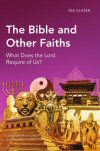
How can we understand religions and the way they affect human beings? What is God doing among people of different faiths?
How do Jesus’ great commandments (Matthew 22:34–40) and great commission (Matthew 28:16-20) relate to people of other religions—and to places of inter-religious conflict?
In today’s world, when Christians think about other religions, numerous questions and issues arise—and their convictions about Christ and about other religions can have a significant influence on their understanding of how God relates to people, and what their own conduct towards them should be.
From her wealth of inter-cultural and inter-faith experience, Ida Glaser believes that the most urgent questions for Christians focus on their own responsibilities and other peoples’ welfare. Responding to Micah 6:8—‘And what does the Lord require of you? To act justly and to love mercy and to walk humbly with your God’—Dr. Glaser explores biblical perspectives on other faiths and their adherents, with clarity, sensitivity, and challenging insights for all Christians.
Ida Glaser is academic director at The Centre for Muslim-Christian Studies, Oxford. She is on the consultant staff of Crosslinks with whom she has been with since 1992. Ida has taught widely at post-graduate level on Islam, mission, and comparative religion in cross-cultural settings in the UK, India, Nigeria, Jamaica, and the Philippines.
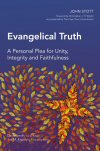
This heartfelt statement from the late John Stott brings into sharp focus the defining essence of evangelical truth. John Stott’s masterly distillation of 60 years’ reflection on Christian discipleship ranges over the history of the church and its formative teachings, as well as the worldwide church today. He expounds the Trinitarian character of the evangelical faith: the gracious initiative of God the Father in revealing himself to us, of Jesus Christ in redeeming us through the cross, and of the indwelling Holy Spirit in transforming us. This is why the three-fold emphasis of evangelical faith is upon the Word of God, the once-for-all nature of the work of Christ and the active, continuing work of the Spirit.
This edition of Evangelical Truth contains The Cape Town Commitment, a document produced by The Lausanne Movement faithfully reflecting the proceedings of The Third Lausanne Congress on World Evangelization.
John Stott is known the world over as a preacher, evangelist, and writer. He was the chief architect of The Lausanne Covenant (1974) and the founder of Langham Partnership, which seeks to equip a new generation of Bible teachers around the world.
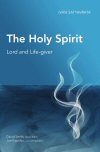
“We believe in ... The Holy Spirit, the Lord and the Life-giver” (The Apostles Creed)
It is impossible to love God and at the same time be dispassionate about the study of God. Deep devotion to Jesus and an all-consuming desire to see his glory fill the earth should fuel the passion of anyone who ventures to write about God and help illuminate other people’s understanding of God and his ways. Few themes call for as much of a blending of mind and heart as that of the Holy Spirit.
The global spread of Pentecostal Christianity, often in context of urban poverty, has attracted much attention. The movement highlights a hunger for the experience of God in our world and provides millions of poor believers with hope for social transformation. Yet spiritual experience needs a fully biblical understanding of the Holy Spirit with which its claims can be properly assessed.
Ivan Satyavrata provides an introduction to the Bible’s teaching on vital issues and questions, many of which have been, and continue to be, a source of confusion and controversy amongst Christians. Combining scholarly enquiry with accessibility, his deep theological reflections and passion for unity will contribute to constructive dialogue and appeal to a wide readership.
Ivan Satyavrata serves as senior pastor of the Assembly of God Church in Kolkata, India. He has played an active role in Christian leadership training and ministerial education, and is currently board chair of the Centre for Global Leadership Development (formerly Southern Asia Bible College) in Bangalore, India.
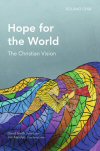
Hope is essential to human life. Without hope, humanity plunges into despair, and life can lose all purpose and meaning. Hope energizes people and communities, and also produces forbearance and patience.
In this clear and accessible survey, which incorporates Asian perspectives, Roland Chia shows how Christian hope presses beyond the limits of both secular and religious worldviews and confronts the reality of pain, suffering, and death in the light of the crucifixion and resurrection of Jesus Christ.
Roland Chia is dean of postgraduate studies and lecturer in historical and systematic theology at Trinity Theological College, Singapore. He is the author and editor of several books, including Revelation and Theology.
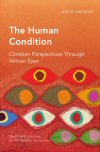
Human beings are complex. For all our contemporary knowledge and ability, however wonderful and widely available, people around the world face a crisis of human identity that calls into question the meaning of existence and the basis of moral behavior.
Responding to these challenges, Joe Kapolyo recognizes both the authority of the Bible, which teaches that people are created in the image of God but also corrupted by rebellion and sin, and the relevance of distinctly African perspectives on what it means to be human. Although he reads these perspectives critically, they lead him to reaffirm the biblical vision of redeemed human life in community in Christ. This vision offers a solution to the crisis of identity experienced by people who have forgotten who they are—and whose they are.
Joe M. Kapolyo, a native of Zambia, is currently the lead minister at Edmonton Baptist Church in north London. He has previously served as principal of All Nations Christian College, UK as well as principal of the Theological College of Central Africa, Zambia. Joe contributed the commentary on Matthew to the one-volume Africa Bible Commentary.
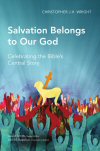
“After this, I looked and there before me was a great multitude that no-one could count . . . And they cried out in a loud voice. ‘Salvation belongs to our God, who sits on the throne, and to the Lamb.’”(Revelation 7:10)
Christopher Wright uses this verse as a lens through which he surveys the Bible’s teaching on salvation. Every phrase in the verse resonates with significant themes in the Old and the New Testaments, all of which combine to show that the Bible tells the story of God’s salvation very broadly indeed, in relation to the character and purposes of God, the death and resurrection of Jesus Christ, the redemption of all creation, the joy of Christian experience and the responsibility of Christian mission. This clear, deep, and warm-hearted exposition enriches our grasp of the Bible’s multi-faceted teaching about salvation.
Christopher J.H. Wright is the international ministry director of Langham Partnership. He was formerly principal of All Nations Christian College, and taught at Union Biblical Seminary, Pune, India. His books include Old Testament Ethics for the People of God, The Mission of God, The Message of Ezekiel, the New International Biblical Commentary on Deuteronomy, and The Mission of God’s People: A Biblical Theology of the Church’s Mission.
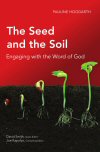
“The Bible either helps or hinders, either liberates or oppresses. It is not neutral.”
Carlos Mesters’ provocative statement shapes all nine chapters of The Seed and the Soil. The book explores the power of the Bible that brings about God’s transforming and liberating purposes, as well as its power as an often oppressively misused text. Characterized by a wide variety of storytelling, this book is accessible to all that read it.
My shelves are full of books about reading the Bible, but Pauline’s new book is outstanding. It is fresh and thoughtful, grounded in personal reality and clearly the fruit of a lifetime of international ministry and friendship, and deep engagement with God’s Word. To those beginning with the Bible, Pauline passes on a wealth of practical insights, and more seasoned readers will be challenged to think more widely and more wisely.
—Jenny Petersen, chaplain, Queen Mary College, University of London
In this excellent book about Bible engagement, Pauline Hoggarth shows at the same time the depth and width of her acquaintance with the Bible, and her rich experience of many years working around the world encouraging people to get into the Book. Her global experience and her teaching ability, take us to cross the missionary frontiers of the twenty-first century with a renewed confidence in the life giving and transforming power of Scripture.
—Samuel Escobar, professor emeritus of missiology, Palmer Theological Seminary
Reading Pauline Hoggarth’s book, one is aware that everything she writes is deeply rooted in her own life of engagement with Scripture and in her wide experience of the Bible’s impact in many different cultural contexts. She is refreshingly open about both the difficulties many people have in engaging with Scripture and the difficulties Scripture itself presents. In addition, it is a pleasure to read a book about engagement with the Bible that is itself engagingly written.
—Richard Bauckham, emeritus professor of New Testament studies, University of St. Andrews
Born in Peru where her parents served in mission among the Quechua people, Pauline Hoggarth read modern languages and taught in Scotland and London. After a research degree in sociolinguistics, she joined Scripture Union in Bolivia and the UK, working with young people and as editor of SU’s adult Bible guides. After a period with Latin Link, she served as SU international’s Bible ministries coordinator. In retirement she has returned to Latin America, volunteering with a church in Colombia.
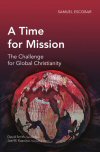
Mission is the responsibility of a global church. The heart of “mission” is the drive to cross geographical, cultural, and social barriers in order to share the good news of Jesus Christ with all peoples.
Drawing on his involvement in missionary work over many years, Samuel Escobar explores how the church spreads the Christian faith. God’s word forms the foundation for his reflections, while he uses insights from theological and historical studies as well as from the social sciences to gain a clearer understanding of the church’s missionary calling. His stimulating and challenging analysis contributes significantly to a global evangelical dialogue on mission today and in the future.
Samuel Escobar, a native of Peru and a leading Latin American theologian, was one of the key participants in the International Congress on World Evangelization at Lausanne, Switzerland, in 1974. He is professor emeritus of missiology at Palmer Theological Seminary in Pennsylvania, USA and teaches contemporary theology at Facultad Protestante de Teologia UEBE in Madrid, Spain. He has previously served as president of the United Bible Societies and the International Fellowship of Evangelical Students.